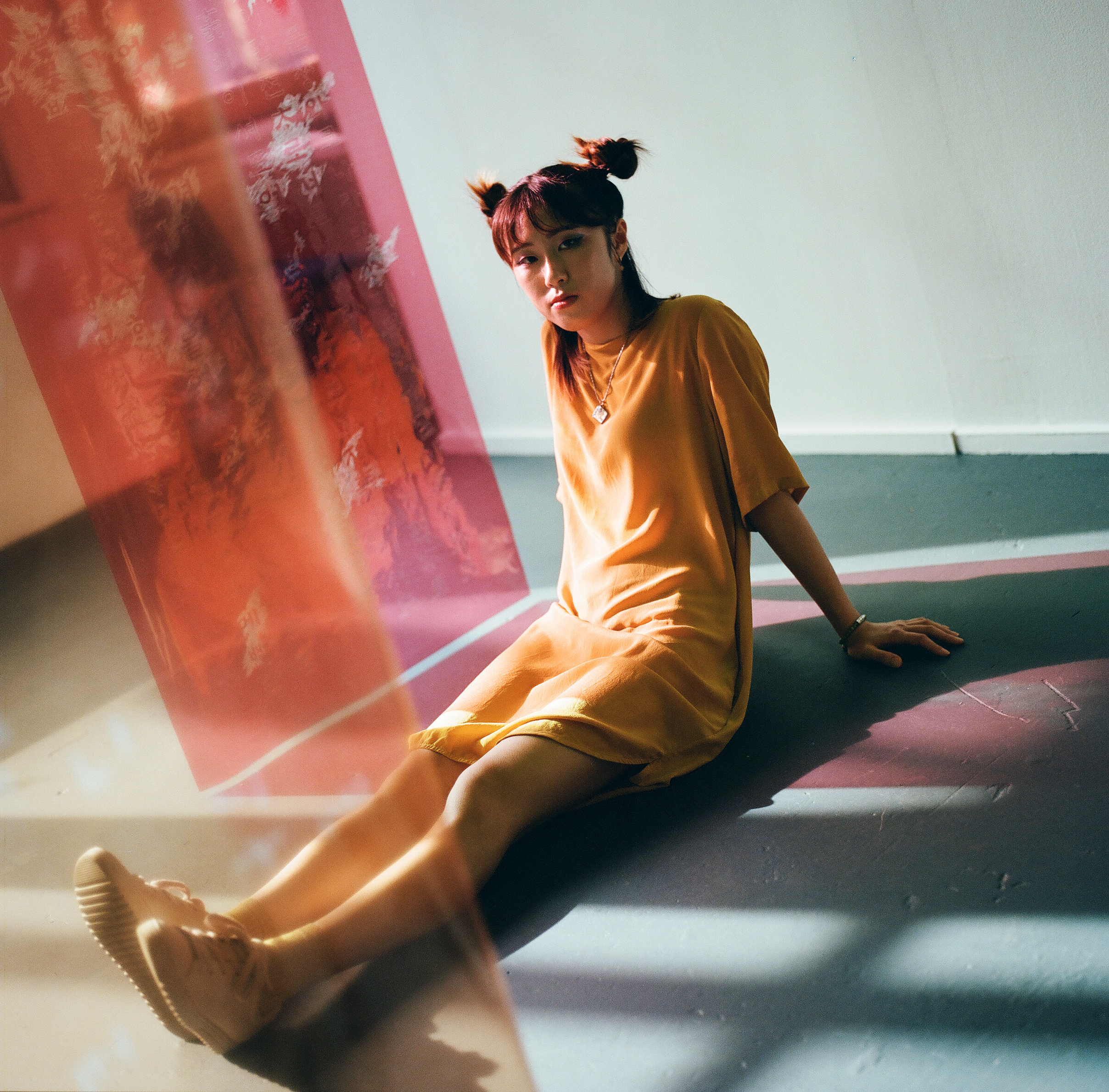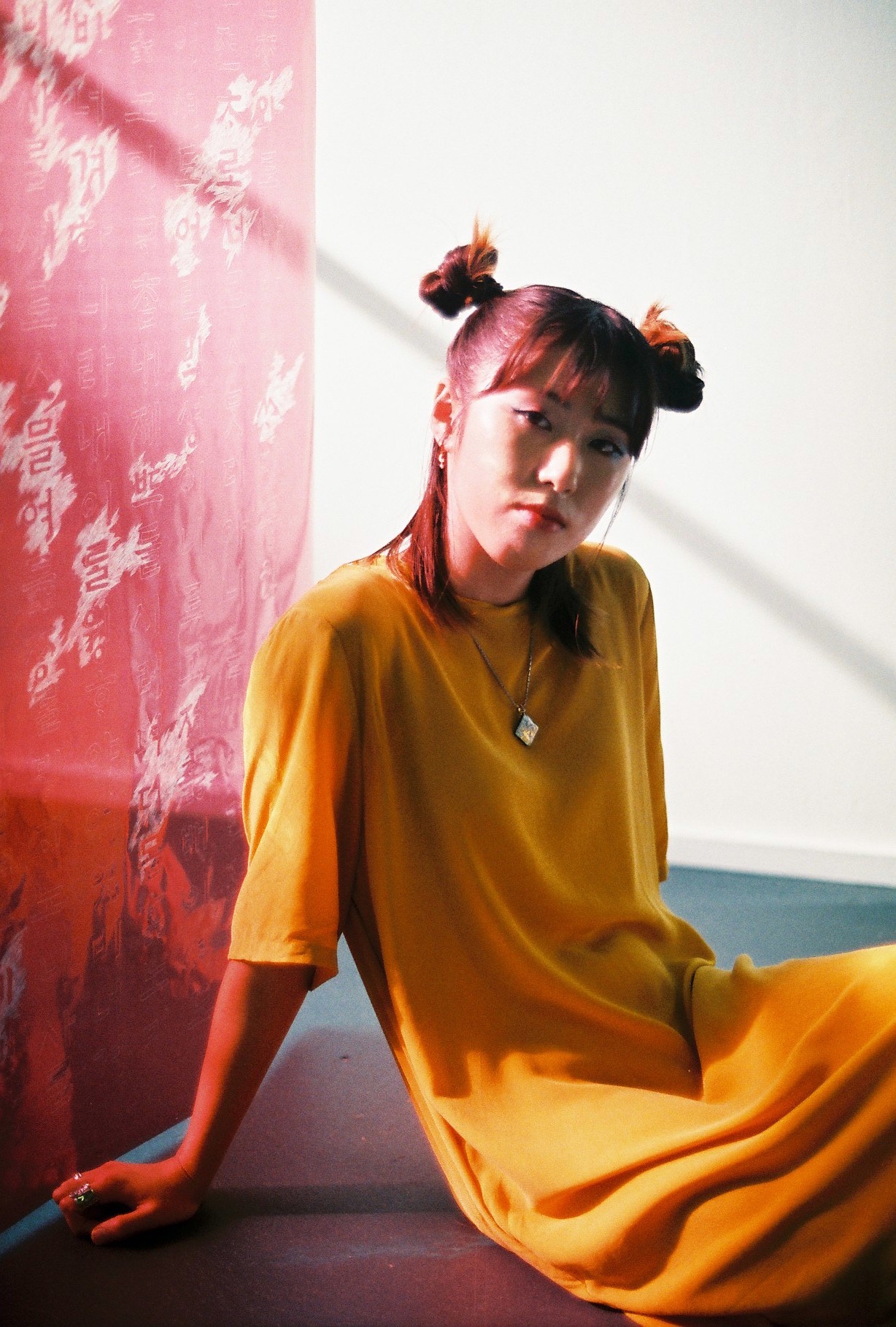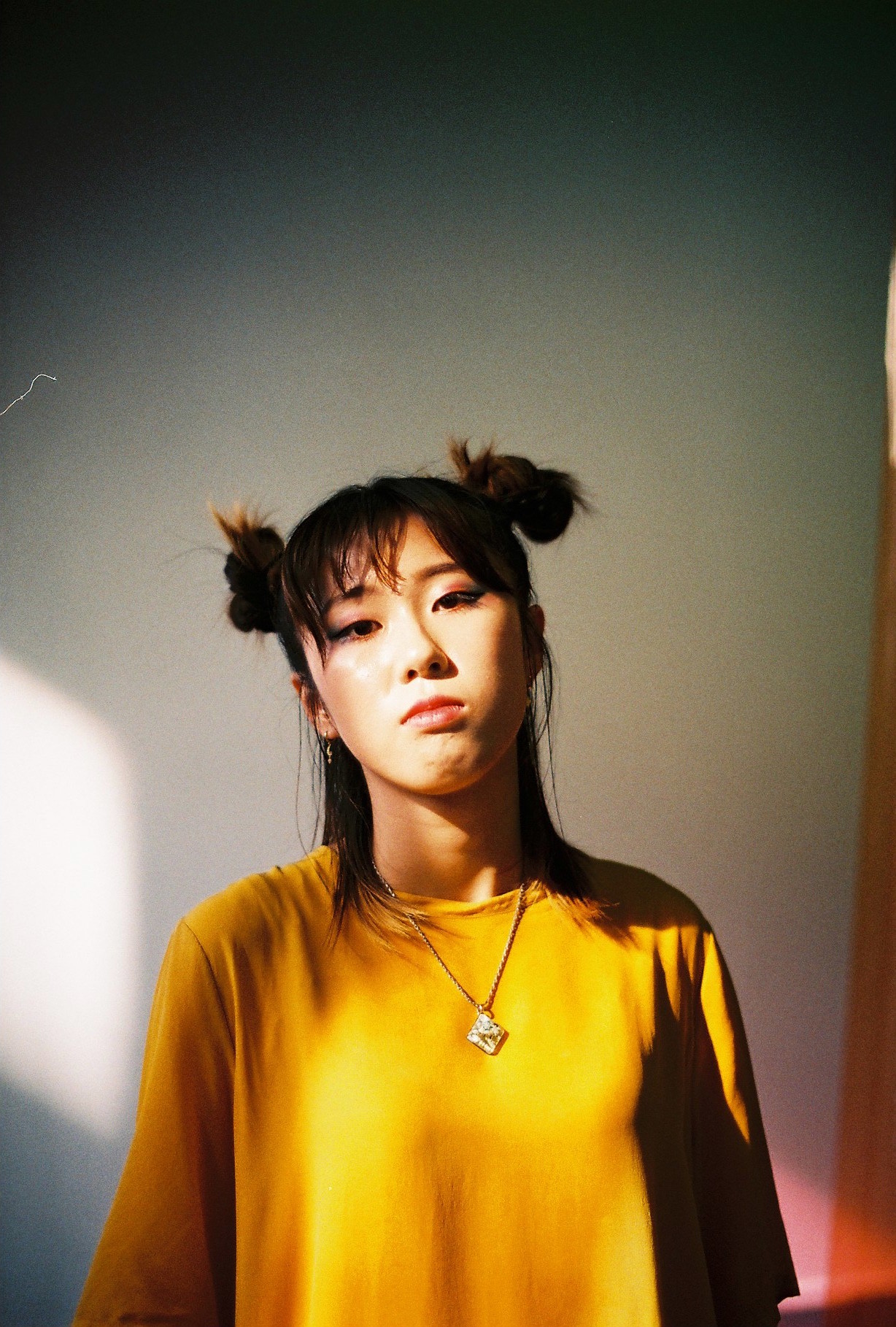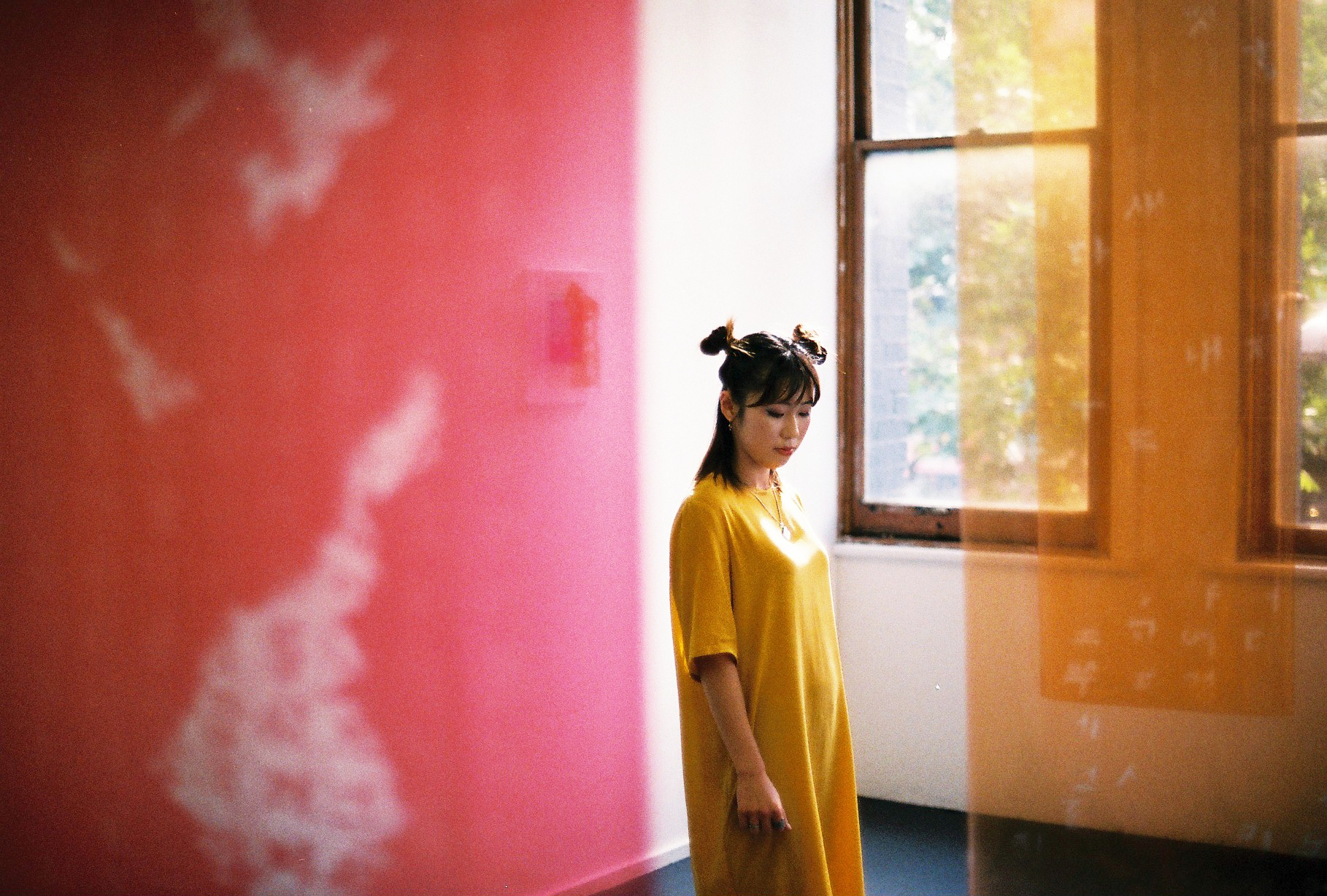Interview #54 — Ellen YG Son
Interviewed by Kelly Yoon
Having lived in Korea, Singapore and Australia, Ellen YG Son occupies a complex cultural position as a contemporary hybrid.
She is interested in deconstructing culture, linguistic limitations and racial barriers, and investigating how these factors constantly reshape cultural identities. She utilises cellophane in her practice as a representation of traditional Korean values and the limitations that they may impose on individuals.
What made you want to become an artist?
My parents have always encouraged me in the arts since I was little. When I won a couple of awards for singing and playing instruments at the age of five, my family pushed me to pursue music. As I grew older, I got tired of my family constantly telling me what to do. I found myself loving the process of art-making and realizing my own ideas were an escape from that family pressure I struggled with. Making art was almost like a liberating or democratic action in my cultural environment.
What is your working environment like?
My working environment is messy. Scattered pieces of cellophanes, origami, colored tapes, and tangled threads around my studio are inspiration for me. They help me to imagine and think more creatively. I do clean my studio whenever I need some empty space to evaluate past works or to brainstorm about future projects.
Having a good ventilation is important for me. I am often required to scratch pigments off the cellophane surfaces for my practice, which creates fumes that are unhealthy to inhale. I wear masks and protective glasses, or keep the studio windows open.
I also dance and sing along hip hop or rap music when making art. The lyrics and the melodies from the music inspire me with ideas considering that I mostly work with text or language. Listening to music also helps me to break the repetitive pattern of the working process. I recently began collecting phrases from song lyrics, poems and conversations with others to use in my practice later.
—
My working environment is messy. Scattered pieces of cellophanes, origami, coloured tapes, and tangled threads around my studio are inspiration for me.
—
Your recent exhibition, ‘Between You and I’, explores cultural perspectives. How has living in Korea, Singapore, and Australia influenced your work?
When I was living in Korea, I was too young to question the traditional Korean cultural and moral values. I was like a sponge, absorbing whatever my school and my family taught me. Everything just made sense to me then.
When my family moved to Singapore, I attended both International and American schools, where I met people from different cultural backgrounds for the first time. When I visited Korea after living overseas for several years, I felt uncomfortable during family outings. I started to challenge traditional Korean values that I disagreed with, but my family’s response was always in the line of ‘you can’t deceive what’s running in your blood’.
Of course, I did not take this well, because I think culture should never take power over the individual. I believe we use culture to construct our own unique framework to live within. Culture is a societal construction. Through ‘Between You and I’, I wanted to tell everyone that they are wearing their own sets of ‘colored glasses’ to see the world. Our views of the world and other people are filtered through the cultures that we were born in and grew up with. However, I believe we can constantly reshape our perspectives by actively choosing what cultural values we associate with more than others.
I like your metaphoric expression of ‘coloured glasses’ as culturally developed individual perspectives. How does your own cultural background shape your perspective towards society?
I truly respect those people who practice their cultures and the traditions. However, I see people, who, without realising, praise their own culture but scrutinise the cultures of others. There is no logic behind conforming to cultures we were born into, or how the physicality of our bodies (and skin colours) tie in with specific cultures.
People need to learn how to observe and experience different cultures without prejudice (except those cultures that violate human rights and sabotage certain genders) and how an individual may not have a sense of belonging to one culture.
I want to tell people that we all have choices and opportunities to either accept and practice certain cultures, or walk away from them. This does not mean cultural appropriation. What I am suggesting is that some people may have either multiple senses of belonging to diverse cultures or no sense of belonging even to one culture at all. I believe there soon will be times when people can choose to become ‘culture unspecified’, who have experienced and possess different cultural values; who acknowledge that their identities are flexible and can subject to constant change in the future; who possess compassionate eyes to see different cultures and people without presumptions when necessary.
As a 1.5 generation immigrant myself, I understand that it gets tough sometimes to live trying to satisfy different cultural expectations. What are some major cultural conflicts you have experienced in Australia? How did you deal with them?
It was hard to explain to my parents that I am in a de facto relationship with my partner. There’s no exact Korean translation to the word ‘partner’, and living together before marriage is often conceived to be an immoral. My parents were upset because they were worried about my future, in case if my relationship does not work out, and I meet a Korean man who won’t understand. They also feel uncomfortable talking about my relationship to their Korean friends and family. But I am responsible for the life choices that I make, and I think you need to confront traditional cultural values or expectations when they are against your decisions.
How should one confront a traditional cultural or moral value?
I believe you must never stop speaking up for your own values, which can anger and upset your loved ones. But you need to challenge your family, and if your family tries to end the conversation by telling you, ‘it is your destiny to live as Korean because you have Korean blood FULL STOP,’ then you could say, ‘my sentence can never be FULL STOPPED, because I choose to explore what’s outside the well. Life is like a flowing river, always moving and mixing with other waters in big oceans and sea, flourishing life in different environments, and sometimes breaking through rocks and layers of debris that have been there for centuries. But once the river stops flowing, the water will become stagnant, and everything that the river carried will eventually die.’
What is your vision in your work?
I want to continue exploring what it means to be a contemporary cultural hybrid in this globalized world in the 21st century, and locate meanings in what I perceive to be an indeterminate or extraterritorial sense of belonging through a poetic approach, while using the cellophanes as the major material.
What are your future plans?
I want to continue creating music and involving people to perform with me. I think this can create an experience of different cultures mixing together in unexpected ways.
Do you have any advice for emerging artists?
Just keep on making art. Even if you don’t have money to make art, just grab scraps and recycled material. Look at what is around you, and make something out of it. You don’t need to have a great idea to start.
Even if you don’t get shows, keep on applying to exhibit. Apply for scholarships and funding program as well. It does not hurt to ask for a feedback on your application when it gets rejected. I asked for tips and feedback to one of the board members, and it was really helpful!
Don’t waste your time thinking about what other people have said about your art if it is not proper criticism. Your time is gold, and you have better things to do.
Lastly, love yourself and take care of yourself. You’ve got a long way to go ahead of you.
Who are you inspired by?
Do Ho Suh, Kimsooja, Sarah Lucas, DEAN, ZICO, Rich Brian, and my fellow artists and friends.
What are you currently listening to?
Mother May I Sleep with Danger by Joy Crookes. Don’t Fade by JGerry. And Raingurl by Yaeji.
What are you currently reading?
I have been reading many articles about the #MeToo and #WithYou campaigns in Korea, Feminism, and other political affairs.
How do you practice self-care?
Go for a walk, or work out at the gym. Listen to music, and read the lyrics. Cook and eat really spicy food when stressed (Yes, I am a masochist). Always have ice-cream or TimTam with milk after dinner.
What does being Asian-Australian mean to you?
I want to say that I am not too attached to the title, Asian-Australian, because I do not want to confine myself in a specific cultural and ethnic identity, since I am constantly experiencing the changes in my cultural and moral values. Also, I will be having multiple titles if I keep on counting: Asian-Australian, like Asian, Korean, Korean Singaporean, Korean American and so on, because I have lived in various cultures.
What’s really important is ‘how’ I have come to this situation where people identify me as Asian-Australian. Is it because I am speaking in Australian accent that took over my American accent, watching Australian footy with my partner’s family, eating chocolate hot cross buns, calling friends ‘mates’, or learning about history of the indigenous peoples of this land? These lifestyles or experiences have become part of who I am as I adopted them while living in Australia, and I really value them, but the title of Asian-Australian is simply one of the identities I have.
Interview by Kelly Yoon.
Photography by Leah Jing at Ellen's exhibition, 'You and I'.







